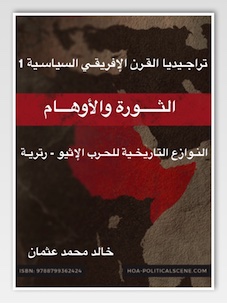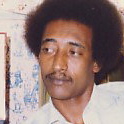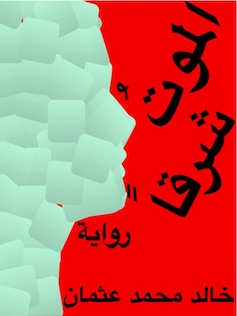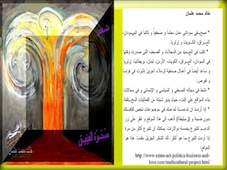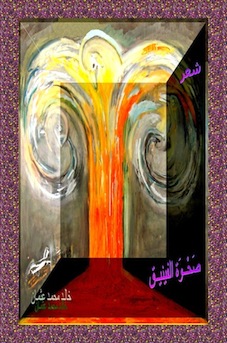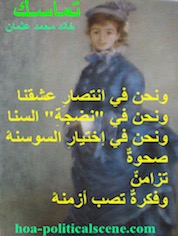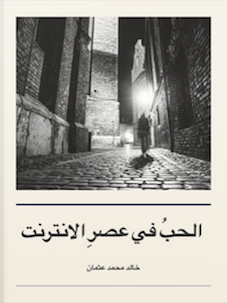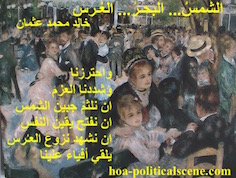Alexander Pushkin
by Asgedet Stefanos
(Boston, MA, USA)
/the following note was posted in response to a blog about Alexander Pushin more than 25 years ago.
------
Alexander Pushkin was an Eritrean. Since I read Akilas’ wonderful essay on Alexander Pushkin, I am compelled to send this note I wrote for the Black History month but shied away from submitting it. Of course some of the details here are already ably covered by Akilas and I endorse his recommendation. Yet, I am posting this note because Pushkin's ancestry has been misrepresented. Even during the 1999 celebration of Pushkin’s 200 year birthday write-ups, none of the major paper’s in the U.S. mentioned the fact that he was an Eritrean. So Bravo Akilas!
One of Russia’s greatest poet, Alexander Pushkin’s great grand-father—Ibrahim—was indeed an Eritrean. He was the son of a Prince and was kidnapped from his palace by invading Turks in the early 1700s. As the Russian-born biographer, Henri Troyat (H. Troyat, Pushkin, New York: Minerva Press, 1975) tells us, "Ibrahim was sent to Constantinople as a hostage and one of his sisters bravely threw herself into the sea in the wake of his ship and drowned."
As befitting the sensibilities of the European ‘nobility’ who wanted to acquire a black person in their imperial court as an ‘exotic’ presence, Peter the Great of Russia had asked his ambassador in Turkey to "procure him a few of those adorable, clever little blackmoors who were the rage just then . . . " So, once again Ibrahim was abducted from Turkey at the age of eight and sent to Russia to the court of Peter the Great. He was baptized and the King of Russia became his godfather and the Queen of Poland his godmother. Then the author tells us that although Ibrahim was "christened Peter, like his august protector, the African never would adopt the name, and called himself Abraham Petrovich until his the King’s death" and later took the family name of Hannibal." It is obvious that Abraham Hannibal identified with a fellow African—Hannibal, the great Carthaginian general.
Abraham Hannibal attended military academy in Russia, fought in wars, went to France to do further military training and became a Captain, worked as an engineer and became an intellectual. Although he lived a distinguished life among the upper crust of St Petersburg nobility and royal family, his life seems to be full of hardship, palace backstabbing and bigotry. For example the author blithely asserts Hannibal’s "colleagues dreaded his stormy, quarrelsome, whining, deceitful and obstinate temper." Nonetheless, he comes through as a proud and accomplished person, who was esteemed for his work. When he died, he was survived by eleven children (one of whom was Osip, who had a daughter named Nadezhdi, Alexander’s Pushkin’s mother). Alexander Pushkin grew up as an entitled child in an intellectually charged surroundings.
Well, it is quite a moving family history to read this particular version of Pushkin’s biography. I suggest that Eritreans, particularly those interested in history and poetry read this book. The family’s experiences of living a diasporic life--their joy, heroism, accomplishment as well as their pain, dislocation and alienation is vividly depicted. This book also gives us a view of 18th century European and Russian society’s bigotry towards Africans. Even this accomplished writer (Troyat) himself seem to espouse some of the stereotypes attributed to his subjects as a given and is not so sympathetic towards them. But anyone who is a third-world person reading these passages cannot help but understand, sympathize, admire and revere these families’ predicament, specifically Abraham Hannibal, who was abducted from his home and sent thousands of miles away. It could also be very inspiring to those Eritreans who were born
or spent many years in foreign lands.
Lastly, the correct identity of Alexander Pushkin should be known. There are many versions of Pushkin’s biography which are abridged and do not entirely include his personal life and his family’s history. This version uses Russian sources and includes extensive new material that has been left out by others. In some books, Alexander Pushkin’s ancestry is wrongly described as an Ethiopian, a Nigerian, an African, a slave, etc... Henri Troyat simply states that Pushkin is an Eritrean from a region around the Mereb valley.
Alexander Pushkin is revered all over the world, especially by Russians who view him as their own. Eritreans rightly should also claim and embrace Alexander Pushkin as one of there own since both his great-grandfather and he himself seemed to have valued their own ancestral heritage. I hope that a young Eritrean graduate student may take an interest in doing research on Pushkin and/or his great grandfather, Abraham Hannibal.
Here is my favorite poem of Pushkin, which may have been written for his grandfather, and perhaps what Pushkin thought Abraham Hannibal must have felt as an exile.
Abandoning an alien country,
You sought your distant native land;
How could I stop the tears at parting
When sorrow was beyond command?
With hands that momentary grew colder I tried to hold you wordlessly
I begged that our farewells, our anguish,
Might be prolonged eternally.
But from the bitter lips and clinging
You tore away your lips; and from
The lonely land of exile
To a new land bade me come.
You said: when we are united,
Beneath a sky of endless blue
In the soft shadows of the olives,
Then, lip to lip, I’ll solace you.
But yonder, where the blue is radiant,
And where the olives from the shore
Cast tender shadows on the waters,
You fell asleep to wake no more,
The funeral urn, alas, is holding
The beauty and your sorrow now,
But the sweet kiss of our reunion
I wait - - - - I hold you to your vow.
--by Alexander Pushkin
Did you get any of my books from Apple Books?
Click here to tell me & get some free books. Fill the form.
رواية "الموتُ شرقاً" تكشف لك سرّ الموت الشرقي التراجيدي المستمر للإنسان
احصل علي الرواية الآن واكتشف إنهيار القواسم المشتركة، واستلهم إبداعا يشبه الأسطورة في النص الروائي
"Follow", "like", "tweet", or "pin" the pictures to express your love! Thanks
TweetHorn Africa's Political Tragedy
Love in the Internet Time on Apple Books
Rising of the Phoenix Poetry on Apple Books
Free Poetry Picture Book
Free poetry picture book on Apple Books. You can use the images on public places for your customers to enjoy, while taking coffee.
The French & Spanish Versions
You can work the French versions and the Spanish versions of the two books above with me on, one on one bases. Contact Us.
HOAs Political Poetry Imaged
I'll be thankful, if you get one of my books.
My Books!
Publish Your BookLet's be the publishers of your book. Use the form at Contact Us.

